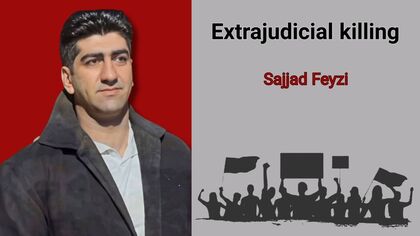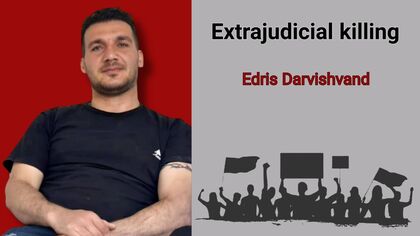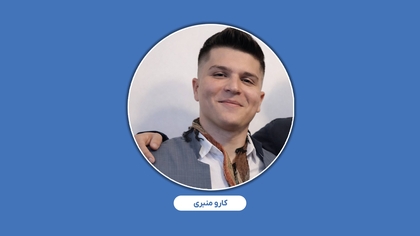UN: Syrian Forces Commit 'Crimes Against Humanity'
13:45 - 29 November 2011

Kurdpa – A U.N. investigation released Monday accused Syrian forces of killing and torturing children and other crimes against humanity over the past eight months as President Bashar Assad\'s regime tried to crush an unprecedented uprising.
The investigation added to mounting international pressure on Assad. On Sunday, the Arab League approved sweeping sanctions to push his embattled regime to end the violence against mostly unarmed protesters.
The report by a U.N. Human Rights Council panel, released in Geneva, found that at least 256 children were killed by government forces between mid-March and early November, with some of them tortured to death.
\"Torture was applied equally to adults and children,\" said the report. \"Numerous testimonies indicated that boys were subjected to sexual torture in places of detention in front of adult men.\"
The report was compiled by a panel of independent experts who were not allowed into Syria. But the commission said that it interviewed 223 victims and witnesses, including defectors from Syria\'s security forces, since September. It said that men and boys were sexually tortured at military detention facilities, and a 2-year-old girl was shot to death just to prevent her from growing up to be a demonstrator.
The panel said government forces were given \"shoot to kill\" orders to crush demonstrations. Some troops \"shot indiscriminately at unarmed protesters,\" while snipers targeted others in the upper body or head.
The full list of alleged crimes committed by Syrian forces included \"murder, torture, rape and other forms of sexual violence,\" said panel chairman Paulo Sergio Pinheiro, a Brazilian professor. \"We have a very solid body of evidence.\"
Syrian officials have not commented directly on the report.
The report and the sanctions are the latest in a growing wave of international measures pressuring Damascus to end its crackdown.
Syria reacted sharply to the sanctions, betraying a deep concern over the economic impact.
Foreign Minister Walid al-Moallem said Syria had withdrawn 95 percent of its assets in Arab countries. Economy Minister Mohammed Nidal al-Shaar said once the sanctions take hold, \"sources of foreign currency would be affected.\" The comment reflected concern that Arab investment in Syria will fall off and transfers from Syrians living in other Arab will also drop.
Al-Moallem called the sanctions \"economic warfare,\" and said Syria had means to retaliate.
\"Sanctions are a two-way street,\" he warned in a televised news conference. \"We don\'t want to threaten anyone, but we will defend the interests of our people.\"
Nevertheless, he tried to play down the impact, insisting Syria is self-sufficient.
\"There is absolutely no concern our people will go hungry or cold,\" he said.
The sanctions include cutting off transactions with Syria\'s central bank, and are expected to squeeze an ailing economy that already is under sanctions by the U.S. and the European Union.
\"We\'ve always said that global sanctions, without Arab sanctions, will not be as effective,\" said Said Hirsh, Mideast economist with Capital Economics in London.
Some 60 percent of Syria\'s exports go to Arab countries. Analysts concede that the sanctions\' effectiveness will hinge largely on whether Arab countries enforce them.
Iraq and Lebanon, which abstained from the Arab League vote, may continue to be markets for Syrian goods, in defiance of the sanctions. Syria shares long borders with both countries and moving goods in and out would be easy.
Still, there is no question the uprising is eviscerating the economy. Hirsh said forecasts indicate Syria\'s economy will contract by 5 percent this year and could shrink by another 10 percent in 2012 if sanctions are enforced and the Assad regime stays in power.
The economic troubles threaten the business community and prosperous merchant classes that are key to propping up the regime. An influential bloc, the business leaders have long traded political freedoms for economic privileges.
The opposition has tried to rally these largely silent, but hugely important, sectors of society. But Assad\'s opponents have failed so far to galvanize support in Damascus and Aleppo -- the two economic centers in Syria.
Sunday\'s sanctions, however, could chip away at their resolve.
Syria has seen the bloodiest crackdown against the Arab Spring\'s eruption of protests, with at least 3,500 people killed since March. Deaths in Egypt, Tunisia and Yemen have numbered in the hundreds. Libya\'s toll is unknown and likely higher than Syria\'s, but the conflict there differed because it descended early on into an outright civil war between two armed sides.
Since the revolt began, the regime has blamed the bloodshed on terrorists acting out a foreign conspiracy to divide and undermine Syria.
Until recently, most of the bloodshed appeared to be caused by security forces firing on mainly peaceful protests. But lately, there have been growing reports of army defectors and armed civilians fighting Assad\'s forces -- a development that some say plays into the regime\'s hands by giving government troops a pretext to crack down with overwhelming force.
The U.N. Security Council was likely to discuss the Arab League sanctions Monday, but no formal action was on the agenda, according to Germany\'s U.N. Ambassador Peter Wittig.
Last month, Russia and China vetoed a Western-backed Security Council resolution condemning the bloodshed in Syria, arguing that NATO misused a previous U.N. mandate authorizing use of force in Libya.
Syria is depending on the strong support from Russia and China to withstand the sanctions and growing isolation.
Violence continued Monday, with activists reporting at least 10 Syrians killed, including seven in the restive Homs province. The toll was impossible to verify because Syria has banned most foreign journalists and prevented independent reporting.
The armed and political wings of the Syrian opposition also took a step Monday toward increasing their cooperation. A delegation from the opposition Syrian National Council headed by its leader Burhan Ghalioun meeting with the Turkey-based leader of the so-called Free Syrian Army, a group of army defectors who have recently been fighting back Assad\'s forces.
The SNC said the two sides agreed to form a joint committee tasked with coordinating movements on the ground.
The Syrian opposition has struggled to overcome infighting and disagreements over the country\'s future in order to present a unified, credible alternative to Assad. If the groups coalesce, they could persuade more Syrians to abandon the regime.
Source – Fox News
The investigation added to mounting international pressure on Assad. On Sunday, the Arab League approved sweeping sanctions to push his embattled regime to end the violence against mostly unarmed protesters.
The report by a U.N. Human Rights Council panel, released in Geneva, found that at least 256 children were killed by government forces between mid-March and early November, with some of them tortured to death.
\"Torture was applied equally to adults and children,\" said the report. \"Numerous testimonies indicated that boys were subjected to sexual torture in places of detention in front of adult men.\"
The report was compiled by a panel of independent experts who were not allowed into Syria. But the commission said that it interviewed 223 victims and witnesses, including defectors from Syria\'s security forces, since September. It said that men and boys were sexually tortured at military detention facilities, and a 2-year-old girl was shot to death just to prevent her from growing up to be a demonstrator.
The panel said government forces were given \"shoot to kill\" orders to crush demonstrations. Some troops \"shot indiscriminately at unarmed protesters,\" while snipers targeted others in the upper body or head.
The full list of alleged crimes committed by Syrian forces included \"murder, torture, rape and other forms of sexual violence,\" said panel chairman Paulo Sergio Pinheiro, a Brazilian professor. \"We have a very solid body of evidence.\"
Syrian officials have not commented directly on the report.
The report and the sanctions are the latest in a growing wave of international measures pressuring Damascus to end its crackdown.
Syria reacted sharply to the sanctions, betraying a deep concern over the economic impact.
Foreign Minister Walid al-Moallem said Syria had withdrawn 95 percent of its assets in Arab countries. Economy Minister Mohammed Nidal al-Shaar said once the sanctions take hold, \"sources of foreign currency would be affected.\" The comment reflected concern that Arab investment in Syria will fall off and transfers from Syrians living in other Arab will also drop.
Al-Moallem called the sanctions \"economic warfare,\" and said Syria had means to retaliate.
\"Sanctions are a two-way street,\" he warned in a televised news conference. \"We don\'t want to threaten anyone, but we will defend the interests of our people.\"
Nevertheless, he tried to play down the impact, insisting Syria is self-sufficient.
\"There is absolutely no concern our people will go hungry or cold,\" he said.
The sanctions include cutting off transactions with Syria\'s central bank, and are expected to squeeze an ailing economy that already is under sanctions by the U.S. and the European Union.
\"We\'ve always said that global sanctions, without Arab sanctions, will not be as effective,\" said Said Hirsh, Mideast economist with Capital Economics in London.
Some 60 percent of Syria\'s exports go to Arab countries. Analysts concede that the sanctions\' effectiveness will hinge largely on whether Arab countries enforce them.
Iraq and Lebanon, which abstained from the Arab League vote, may continue to be markets for Syrian goods, in defiance of the sanctions. Syria shares long borders with both countries and moving goods in and out would be easy.
Still, there is no question the uprising is eviscerating the economy. Hirsh said forecasts indicate Syria\'s economy will contract by 5 percent this year and could shrink by another 10 percent in 2012 if sanctions are enforced and the Assad regime stays in power.
The economic troubles threaten the business community and prosperous merchant classes that are key to propping up the regime. An influential bloc, the business leaders have long traded political freedoms for economic privileges.
The opposition has tried to rally these largely silent, but hugely important, sectors of society. But Assad\'s opponents have failed so far to galvanize support in Damascus and Aleppo -- the two economic centers in Syria.
Sunday\'s sanctions, however, could chip away at their resolve.
Syria has seen the bloodiest crackdown against the Arab Spring\'s eruption of protests, with at least 3,500 people killed since March. Deaths in Egypt, Tunisia and Yemen have numbered in the hundreds. Libya\'s toll is unknown and likely higher than Syria\'s, but the conflict there differed because it descended early on into an outright civil war between two armed sides.
Since the revolt began, the regime has blamed the bloodshed on terrorists acting out a foreign conspiracy to divide and undermine Syria.
Until recently, most of the bloodshed appeared to be caused by security forces firing on mainly peaceful protests. But lately, there have been growing reports of army defectors and armed civilians fighting Assad\'s forces -- a development that some say plays into the regime\'s hands by giving government troops a pretext to crack down with overwhelming force.
The U.N. Security Council was likely to discuss the Arab League sanctions Monday, but no formal action was on the agenda, according to Germany\'s U.N. Ambassador Peter Wittig.
Last month, Russia and China vetoed a Western-backed Security Council resolution condemning the bloodshed in Syria, arguing that NATO misused a previous U.N. mandate authorizing use of force in Libya.
Syria is depending on the strong support from Russia and China to withstand the sanctions and growing isolation.
Violence continued Monday, with activists reporting at least 10 Syrians killed, including seven in the restive Homs province. The toll was impossible to verify because Syria has banned most foreign journalists and prevented independent reporting.
The armed and political wings of the Syrian opposition also took a step Monday toward increasing their cooperation. A delegation from the opposition Syrian National Council headed by its leader Burhan Ghalioun meeting with the Turkey-based leader of the so-called Free Syrian Army, a group of army defectors who have recently been fighting back Assad\'s forces.
The SNC said the two sides agreed to form a joint committee tasked with coordinating movements on the ground.
The Syrian opposition has struggled to overcome infighting and disagreements over the country\'s future in order to present a unified, credible alternative to Assad. If the groups coalesce, they could persuade more Syrians to abandon the regime.
Source – Fox News



